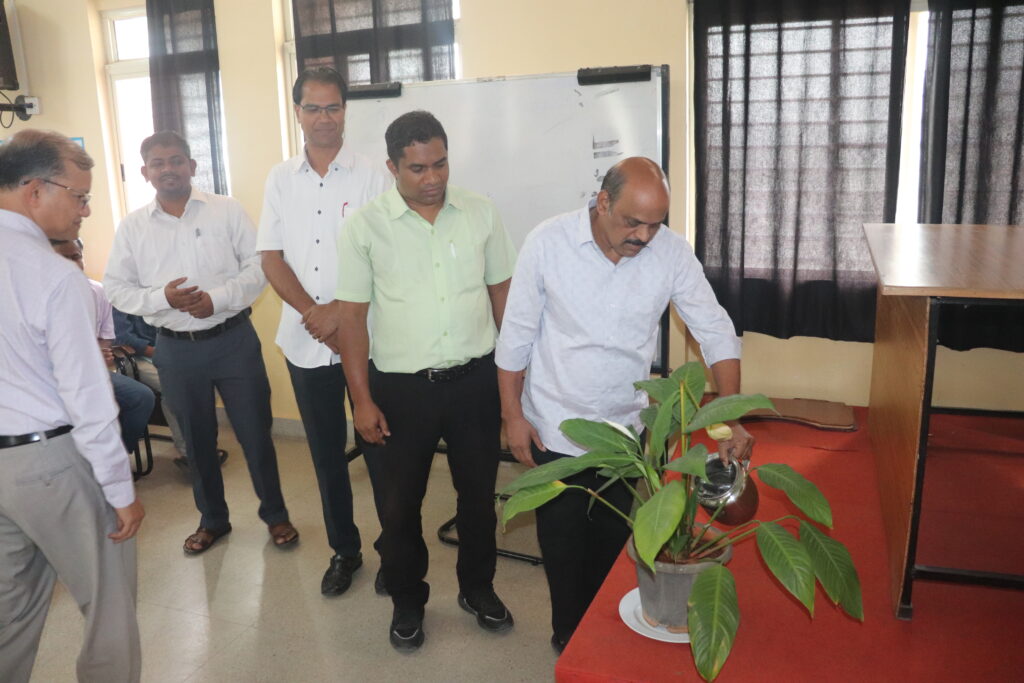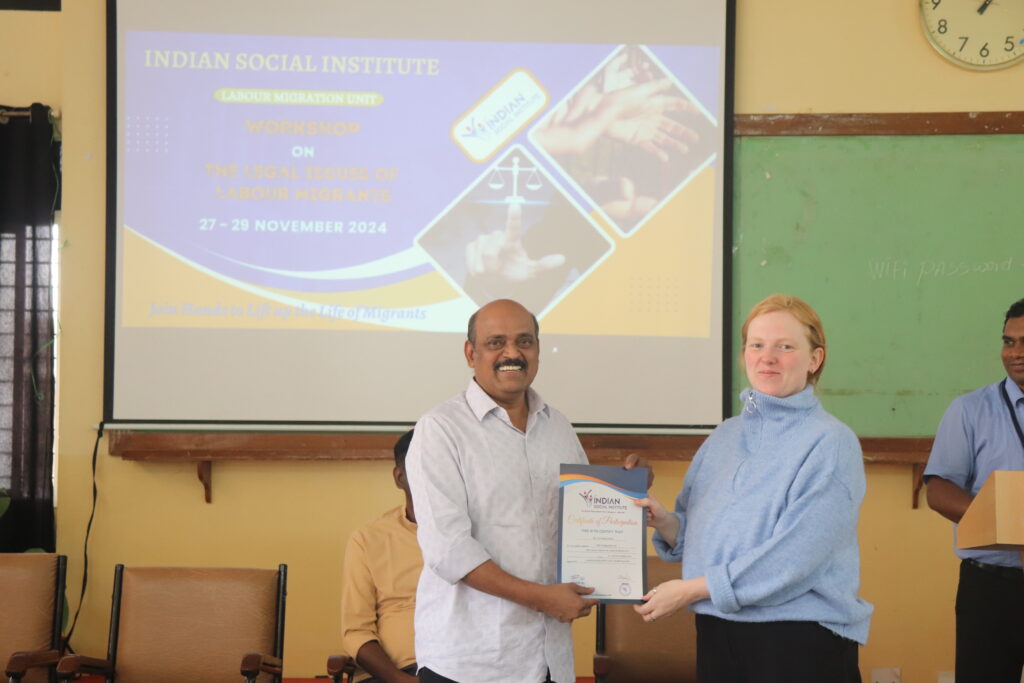


The Indian Social Institute (ISI), Bengaluru, organized a three-day workshop from November 27th to 29th, 2024, focusing on “Legal Issues Faced by Migrants.” This event brought together experts, activists, and participants from across India to address the legal challenges encountered by migrants and those working among them and explore actionable solutions for their empowerment.
In the inaugural function, the chief functionaries of ISI Bengaluru, Fr. Anthony Dass the Vice-President, Dr. Selvaraj Arulnathan, the Director, Fr. Savari Joseph, the Administrator and other Jesuits were present along with special invitees.
In the welcome address, Dr. Selvaraj Arulnathan emphasized the critical role and the collective efforts of all those working among the migrants and assured that ISI B will continue to commit itself in all possible ways to empower and emancipate distress migrants in all possible ways. Others spoke on the importance and urgency with which we need to work and empower migrants in terms of just wages, proper and conducive work conditions, upholding their privacy, etc. Dr. Denzil, SJ, Head of the Peace and Reconciliation Unit, elaborated on the socio-legal challenges migrants face, including lack of documentation, discrimination, and exploitation. His address set the stage for the workshop’s core discussions.
Dr. Martin Puducherry, Director of MAIN addressed the issues of wage exploitation, legal remedies and practices with real life examples and analyses. His long and committed service to distress migrants brought in new vigour for the workshop.
Other guest speakers highlighted issues like human trafficking, legal frameworks for legal proceedings, collaborative action, etc. One of them illustrated the agonies of those incarcerated in the jail and how to make legal aid accessible to them. Advocate Sushavya explained the key provisions of labor accident and death compensation laws, emphasizing the importance of proper documentation and employer compliance.
This workshop served as a platform to deepen understanding of migrant issues and strategize actionable responses. The Labour Migration Unit reaffirmed its commitment to advocating for migrants’ rights through awareness, collaboration, and legal intervention.
Many NGOs working across he country represented by their members and it was much appreciated for the impact it would create among the functionaries working among distress migrants.
